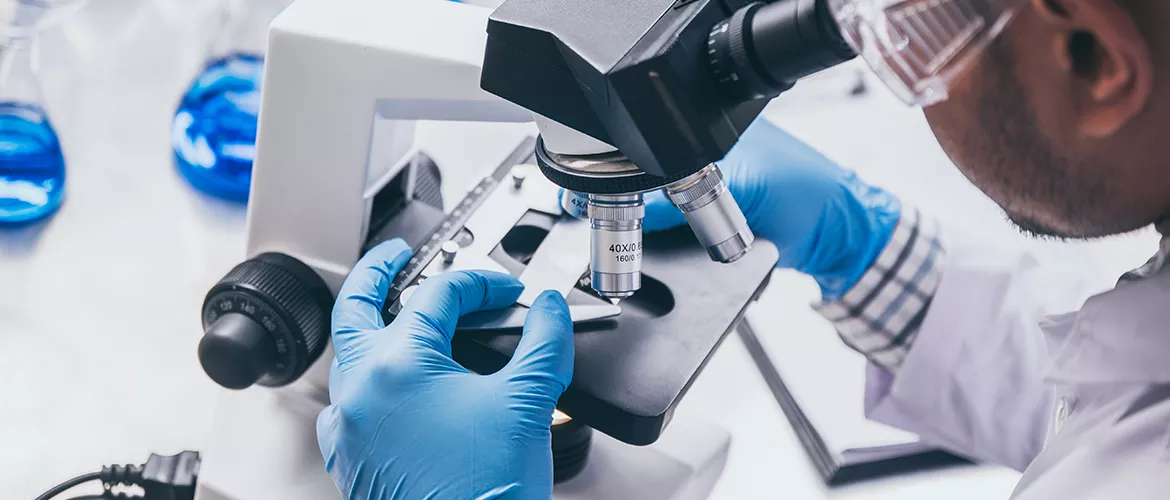Sep 20, 2021 | News
NHS launches trial of early detection blood test: Galleri

This week, the NHS announced the exciting news of a trial for the Galleri blood test.
We are so happy to hear the NHS is backing a blood test for the early detection of cancer. This opens the door to many more opportunities for pioneering technologies to be embraced and proven successful. We are proud that the UK is at the forefront of trialling important and innovative technologies.
The trial is the first of its kind in the UK and is seeking to recruit 140,000 volunteers to see if Galleri is successful for the NHS. Anyone participating must not have had a cancer diagnosis in the past three years and will be invited to give a blood sample once a year for three years.
Haven’t heard of Galleri?
Galleri is a multi-cancer early detection blood test. It has been developed by the US healthcare company GRAIL. At the end of last year, GRAIL partnered with the NHS to start plans to launch this trial across England.
GRAIL has made it financially possible for the NHS to partner with them on this trial, which is a major first step for Galleri to become approved and available.
Previously, Galleri has only been tested on people who were already diagnosed with cancer. This trial will aim to see how successful Galleri is at detecting cancer in people who have not yet been diagnosed and considered ‘healthy’.
The results from the trial are expected in 2023. If it is successful, the test will hopefully be approved for an extended rollout to 1 million people in 2024 and 2025.
What is the difference between Galleri and PanTum Detect?
Both tests are multi-cancer early detection blood tests. However, there are key differences in how each test delivers results.
Galleri is a cell-free DNA (cfDNA)-based blood test, which means it detects fragments of cfDNA shed by tumours in the bloodstream.
To detect the cfDNA from cancer tumours, Galleri uses modern genetic sequencing technology and artificial intelligence to mark the pattern of chemical changes that are found in cancer cells, but not healthy cells.
The Galleri website gives detail on why cfDNA is important to their technology: “Different cancers shed DNA into the bloodstream at different rates. The greater the proportion of cfDNA in a sample, the stronger its signal and the more likely it is to be detected by the Galleri test.”
Currently, Galleri has 99.5% specificity and 76.3% sensitivity. Galleri also has 89% cancer signal origin accuracy, which means it can correctly detect where the cancer is in the body, 89% of the time.
The test has not been cleared or approved by the US FDA or certified by the CE yet.
Now let’s look at PanTum Detect.
PanTum Detect is a simple blood test that measures two unique biomarkers.
PanTum Detect uses Epitope Detection in Macrophages (EDIM), an innovative technology which draws upon the natural mechanism of the immune system to collect macrophages and detect universal biomarkers Apo10 and TKTL1. Apo10 is found in the earliest signs of tumour development, while TKTL1, manifests at the early stages of metastasis.
The PanTum Detect test uses EDIM to track these two biomarkers, which together can detect the presence of any early-stage cancer.
Using flow cytometry, each biomarker is given a score depending on how much is present in the sample and the scores combined to give a positive or negative result.
PanTum Detect has 99.05% specificity and 97.50% sensitivity.
This high level of sensitivity is possible because of the high concentration of relevant tumour biomarkers in the macrophages (white blood cells) analysed in the test. High specificity is achieved by observing the immune system’s response to these biomarkers.
The 97.50% sensitivity, recorded officially for the CE license approval, is the best in its class, as well as the combination with specificity.
PanTum Detect can also indicate whether your cancer is likely to be early or late stage. This is thanks to the markers it detects. One marker indicates early-stage cancer, while the other is only present in later stage cancers.
PanTum Detect was awarded CE certification in 2017 and is commercially available world-wide.
Revolutionizing cancer care
Both Galleri and PanTum Detect have huge potential to revolutionize the way we approach early detection in cancer care.
This trial will hopefully spread awareness of the effectiveness of early detection blood tests for cancer. There is never only one test or one solution for cancer screening. Each innovative technology sheds new light and provides new information for doctors to make the best possible decisions for their patients. Each cancer case is unique, and therefore requires unique solutions.
We hope the trial proves to be successful, and that Galleri and PanTum Detect can save lives and ignite positive change in the world of cancer care.
If you would like to partner with RMDM or find out more about PanTum Detect, please get in touch via our contact form.
References:
https://www.england.nhs.uk/2021/09/nhs-launches-world-first-trial-for-new-cancer-test/
https://www.england.nhs.uk/2020/11/nhs-to-pilot-potentially-revolutionary-blood-test/